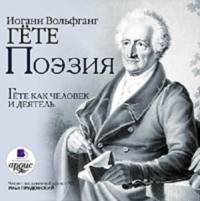 полная версия
полная версияMaxims and Reflections
No nation gains the power of judgment except it can pass judgment on itself. But to attain this great privilege takes a very long time.
87Instead of contradicting my words people ought to act in my spirit.
88Those who oppose intellectual truths do but stir up the fire, and the cinders fly about and burn what they had else not touched.
89Man would not be the finest creature in the world if he were not too fine for it.
90What a long time people were vainly disputing about the Antipodes!
91Certain minds must be allowed their peculiarities.
92Snow is false purity.
93Whoso shrinks from ideas ends by having nothing but sensations.
94Those from whom we are always learning are rightly called our masters; but not every one who teaches us deserves this title.
95It is with you as with the sea: the most varied names are given to what is in the end only salt water.
96It is said that vain self-praise stinks in the nostrils. That may be so; but for the kind of smell which comes from unjust blame by others the public has no nose at all.
97There are problematical natures which are equal to no position in which they find themselves, and which no position satisfies. This it is that causes that hideous conflict which wastes life and deprives it of all pleasure.
98If we do any real good, it is mostly clam, vi, et precario.
99Dirt glitters as long as the sun shines.
100It is difficult to be just to the passing moment. We are bored by it if it is neither good nor bad; but the good moment lays a task upon us, and the bad moment a burden.
101He is the happiest man who can set the end of his life in connection with the beginning.
102So obstinately contradictory is man that you cannot compel him to his advantage, yet he yields before everything that forces him to his hurt.
103Forethought is simple, afterthought manifold.
104A state of things in which every day brings some new trouble is not the right one.
105When people suffer by failing to look before them, nothing is commoner than trying to look out for some possible remedy.
106The Hindoos of the Desert make a solemn vow to eat no fish.
107To venture an opinion is like moving a piece at chess: it may be taken, but it forms the beginning of a game that is won.
108It is as certain as it is strange that truth and error come from one and the same source. Thus it is that we are often not at liberty to do violence to error, because at the same time we do violence to truth.
109Truth belongs to the man, error to his age. This is why it has been said that, while the misfortune of the age caused his error, the force of his soul made him emerge from the error with glory.
110Every one has his peculiarities and cannot get rid of them; and yet many a one is destroyed by his peculiarities, and those too of the most innocent kind.
111If a man does think too much of himself, he is more than he believes himself to be.
112In art and knowledge, as also in deed and action, everything depends on a pure apprehension of the object and a treatment of it according to its nature.
113When intelligent and sensible people despise knowledge in their old age, it is only because they have asked too much of it and of themselves.
114I pity those who make much ado about the transitory nature of all things and are lost in the contemplation of earthly vanity: are we not here to make the transitory permanent? This we can do only if we know how to value both.
115A rainbow which lasts a quarter of an hour is looked at no more.
116It used to happen, and still happens, to me to take no pleasure in a work of art at the first sight of it, because it is too much for me; but if I suspect any merit in it, I try to get at it; and then I never fail to make the most gratifying discoveries, – to find new qualities in the work itself and new faculties in myself.
117Faith is private capital, kept in one's own house. There are public savings-banks and loan-offices, which supply individuals in their day of need; but here the creditor quietly takes his interest for himself.
118Real obscurantism is not to hinder the spread of what is true, clear, and useful, but to bring into vogue what is false.
119During a prolonged study of the lives of various men both great and small, I came upon this thought: In the web of the world the one may well be regarded as the warp, the other as the woof. It is the little men, after all, who give breadth to the web, and the great men firmness and solidity; perhaps, also, the addition of some sort of pattern. But the scissors of the Fates determine its length, and to that all the rest must join in submitting itself.
120Truth is a torch, but a huge one, and so it is only with blinking eyes that we all of us try to get past it, in actual terror of being burnt.
121'The wise have much in common with one another.' Æschylus.
122The really foolish thing in men who are otherwise intelligent is that they fail to understand what another person says, when he does not exactly hit upon the right way of saying it.
123Because a man speaks, he thinks he is able to speak about language.
124One need only grow old to become gentler in one's judgments. I see no fault committed which I could not have committed myself.
125The man who acts never has any conscience; no one has any conscience but the man who thinks.
126Why should those who are happy expect one who is miserable to die before them in a graceful attitude, like the gladiator before the Roman mob?
127Some one asked Timon about the education of his children. 'Let them,' he said, 'be instructed in that which they will never understand.'
128There are people whom I wish well, and would that I could wish better.
129By force of habit we look at a clock that has run down as if it were still going, and we gaze at the face of a beauty as though she still loved.
130Hatred is active displeasure, envy passive. We need not wonder that envy turns so soon to hatred.
131There is something magical in rhythm; it even makes us believe that we possess the sublime.
132Dilettantism treated seriously, and knowledge pursued mechanically, end by becoming pedantry.
133No one but the master can promote the cause of Art. Patrons help the master, – that is right and proper; but that does not always mean that Art is helped.
134The most foolish of all errors is for clever young men to believe that they forfeit their originality in recognising a truth which has already been recognised by others.
135Scholars are generally malignant when they are refuting others; and if they think a man is making a mistake, they straightway look upon him as their mortal enemy.
136Beauty can never really understand itself.
III
137It is much easier to recognise error than to find truth; for error lies on the surface and may be overcome; but truth lies in the depths, and to search for it is not given to every one.
138We all live on the past, and through the past are destroyed.
139We are no sooner about to learn some great lesson than we take refuge in our own innate poverty of soul, and yet for all that the lesson has not been quite in vain.
140The world of empirical morality consists for the most part of nothing but ill-will and envy.
141Life seems so vulgar, so easily content with the commonplace things of every day, and yet it always nurses and cherishes certain higher claims in secret, and looks about for the means of satisfying them.
142Confidences are strange things. If you listen only to one man, it is possible that he is deceived or mistaken; if you listen to many, they are in a like case; and, generally, you cannot get at the truth at all.
143No one should desire to live in irregular circumstances; but if by chance a man falls into them, they test his character and show of how much determination he is capable.
144An honourable man with limited ideas often sees through the rascality of the most cunning jobber.
145If a man feels no love, he must learn how to flatter; otherwise he will not succeed.
146Against criticism a man can neither protest nor defend himself; he must act in spite of it, and then criticism will gradually yield to him.
147The masses cannot dispense with men of ability, and such men are always a burden to them.
148If a man spreads my failings abroad, he is my master, even though he were my servant.
149Whether memoirs are written by masters of servants, or by servants of masters, the processes always meet.
150If you lay duties upon people and give them no rights, you must pay them well.
151I can promise to be sincere, but not to be impartial.
152Ingratitude is always a kind of weakness. I have never known men of ability to be ungrateful.
153We are all so limited that we always think we are right; and so we may conceive of an extraordinary mind which not only errs but has a positive delight in error.
154It is very rare to find pure and steady activity in the accomplishment of what is good and right. We usually see pedantry trying to keep back, and audacity trying to go on too fast.
155Word and picture are correlatives which are continually in quest of each other, as is sufficiently evident in the case of metaphors and similes. So from all time what was said or sung inwardly to the ear had to be presented equally to the eye. And so in childish days we see word and picture in continual balance; in the book of the law and in the way of salvation, in the Bible and in the spelling-book. When something was spoken which could not be pictured, and something pictured which could not be spoken, all went well; but mistakes were often made, and a word was used instead of a picture; and thence arose those monsters of symbolical mysticism, which are doubly an evil.
156For the man of the world a collection of anecdotes and maxims is of the greatest value, if he knows how to intersperse the one in his conversation at fitting moments, and remember the other when a case arises for their application.
157When you lose interest in anything, you also lose the memory for it.
158The world is a bell with a crack in it; it rattles, but does not ring.
159The importunity of young dilettanti must be borne with good-will; for as they grow old they become the truest worshippers of Art and the Master.
160People have to become really bad before they care for nothing but mischief, and delight in it.
161Clever people are the best encyclopædia.
162There are people who make no mistakes because they never wish to do anything worth doing.
163If I know my relation to myself and the outer world, I call it truth. Every man can have his own peculiar truth; and yet it is always the same.
164No one is the master of any truly productive energy; and all men must let it work on by itself.
165A man never understands how anthropomorphic he is.
166A difference which offers nothing to the understanding is no difference at all.
167A man cannot live for every one; least of all for those with whom he would not care to live.
168If a man sets out to study all the laws, he will have no time left to transgress them.
169Things that are mysterious are not yet miracles.
170'Converts are not in my good books.'
171A frivolous impulsive encouragement of problematical talents was a mistake of my early years; and I have never been able to abandon it altogether.
172I should like to be honest with you, without our falling out; but it will not do. You act wrongly, and fall between two stools; you win no adherents and lose your friends. What is to be the end of it?
173It is all one whether you are of high or of humble origin. You will always have to pay for your humanity.
174When I hear people speak of liberal ideas, it is always a wonder to me that men are so readily put off with empty verbiage. An idea cannot be liberal; but it may be potent, vigorous, exclusive, in order to fulfil its mission of being productive. Still less can a concept be liberal; for a concept has quite another mission. Where, however, we must look for liberality, is in the sentiments; and the sentiments are the inner man as he lives and moves. A man's sentiments, however, are rarely liberal, because they proceed directly from him personally, and from his immediate relations and requirements. Further we will not write, and let us apply this test to what we hear every day.
175If a clever man commits a folly, it is not a small one.
176There is a poetry without figures of speech, which is a single figure of speech.
177I went on troubling myself about general ideas until I learnt to understand the particular achievements of the best men.
178It is only when a man knows little, that he knows anything at all. With knowledge grows doubt.
179The errors of a man are what make him really lovable.
180There are men who love their like and seek it; others love their opposite and follow after it.
181If a man has always let himself think the world as bad as the adversary represents it to be, he must have become a miserable person.
182Ill-favour and hatred limit the spectator to the surface, even when keen perception is added unto them; but when keen perception unites with good-will and love, it gets at the heart of man and the world; nay, it may hope to reach the highest goal of all.
183Raw matter is seen by every one; the contents are found only by him who has his eyes about him; and the form is a secret to the majority.
184We may learn to know the world as we please: it will always retain a bright and a dark side.
185Error is continually repeating itself in action, and we must unweariedly repeat the truth in word.
186As in Rome there is, apart from the Romans, a population of statues, so apart from this real world there is a world of illusion, almost more potent, in which most men live.
187Mankind is like the Red Sea: the staff has scarcely parted the waves asunder, before they flow together again.
188Thoughts come back; beliefs persist; facts pass by never to return.
189Of all peoples, the Greeks have dreamt the dream of life the best.
190We readily bow to antiquity, but not to posterity. It is only a father that does not grudge talent to his son.
191There is no virtue in subordinating oneself; but there is virtue in descending, and in recognising anything as above us, which is beneath us.
192The whole art of living consists in giving up existence in order to exist.
193All our pursuits and actions are a wearying process. Well is it for him who wearies not.
194Hope is the second soul of the unhappy.
195Love is a true renovator.
196Mankind is not without a wish to serve; hence the chivalry of the French is a servitude.
197In the theatre the pleasure of what we see and hear restrains our reflections.
198There is no limit to the increase of experience, but theories cannot become clearer and more complete in just the same sense. The field of experience is the whole universe in all directions. Theory remains shut up within the limits of the human faculties. Hence there is no way of looking at the world, but it recurs, and the curious thing happens, that with increased experience a limited theory may again come into favour.
It is always the same world which stands open to observation, which is continually being contemplated or guessed at; and it is always the same men who live in the true or in the false; more at their ease in the latter than in the former.
199Truth is at variance with our natures, but not so error; and for a very simple reason. Truth requires us to recognise ourselves as limited, but error flatters us with the belief that in one way or another we are subject to no bounds at all.
200That some men think they can still do what they have been able to do, is natural enough; that others think they can do what they have never been able to do, is singular, but not rare.
201At all times it has not been the age, but individuals alone, who have worked for knowledge. It was the age which put Socrates to death by poison, the age which burnt Huss. The ages have always remained alike.
202That is true Symbolism, where the more particular represents the more general, not as a dream or shade, but as a vivid, instantaneous revelation of the Inscrutable.
203Everything of an abstract or symbolic nature, as soon as it is challenged by realities, ends by consuming them and itself. So credit consumes both money and itself.
204Mastery often passes for egoism.
205With Protestants, as soon as good works cease and their merit is denied, sentimentality takes their place.
206If a man knows where to get good advice, it is as though he could supply it himself.
207The use of mottoes is to indicate something we have not attained, but strive to attain. It is right to keep them always before our eyes.
208'If a man cannot lift a stone himself, let him leave it, even though he has some one to help him.'
209Despotism promotes general self-government, because from top to bottom it makes the individual responsible, and so produces the highest degree of activity.
210A man must pay dear for his errors if he wishes to get rid of them, and even then he is lucky.
211Enthusiasm is of the greatest value, so long as we are not carried away by it.
212School itself is the only true preparation for it.
213Error is related to truth as sleep to waking. I have observed that on awakening from error a man turns again to truth as with new vigour.
214Every one suffers who does not work for himself. A man works for others to have them share in his joy.
215Men's prejudices rest upon their character for the time being and cannot be overcome, as being part and parcel of themselves. Neither evidence nor common-sense nor reason has the slightest influence upon them.
216Characters often make a law of their failings. Men who know the world have said that when prudence is only fear in disguise, its scruples cannot be conquered. The weak often have revolutionary sentiments; they think they would be well off if they were not ruled, and fail to perceive that they can rule neither themselves nor others.
217Common-sense is born pure in the healthy man, is self-developed, and is revealed by a resolute perception and recognition of what is necessary and useful. Practical men and women avail themselves of it with confidence. Where it is absent, both sexes find anything necessary when they desire it, and useful when it gives them pleasure.
218All men, as they attain freedom, give play to their errors. The strong do too much, and the weak too little.
219The conflict of the old, the existing, the continuing, with development, improvement, and reform, is always the same. Order of every kind turns at last to pedantry, and to get rid of the one, people destroy the other; and so it goes on for a while, until people perceive that order must be established anew. Classicism and Romanticism; close corporations and freedom of trade; the maintenance of large estates and the division of the land, – it is always the same conflict which ends by producing a new one. The best policy of those in power would be so to moderate this conflict as to let it right itself without the destruction of either element. But this has not been granted to men, and it seems not to be the will of God.
220A great work limits us for the moment, because we feel it above our powers; and only in so far as we afterwards incorporate it with our culture, and make it part of our mind and heart, does it become a dear and worthy object.
221It is no wonder that we all more or less delight in the mediocre, because it leaves us in peace: it gives us the comfortable feeling of intercourse with what is like ourselves.
222There is no use in reproving vulgarity, for it never changes.
223We cannot escape a contradiction in ourselves; we must try to resolve it. If the contradiction comes from others, it does not affect us: it is their affair.
224There are many things in the world that are at once good and excellent, but they do not come into contact.
225Which is the best government? That which teaches us to govern ourselves.
226When men have to do with women, they get spun off like a distaff.
227It may well be that a man is at times horribly threshed by misfortunes, public and private: but the reckless flail of Fate, when it beats the rich sheaves, crushes only the straw; and the corn feels nothing of it and dances merrily on the floor, careless whether its way is to the mill or the furrow.
228However probable it is that a desire may be fulfilled, there is always a doubt; and so when the desire is realised, it is always surprising.
229Absurdities presented with good taste rouse disgust and admiration.
230Of the best society it used to be said: their speech instructs the mind, and their silence the feelings.
231Nothing is more terrible than ignorance in action.
232Beauty and Genius must be kept afar if one would avoid becoming their slave.
233We treat the aged with consideration, as we treat children.
234An old man loses one of the greatest of human privileges: he is no more judged by his peers.
235In the matter of knowledge, it has happened to me as to one who rises early, and in the dark impatiently awaits the dawn, and then the sun; but is blinded when it appears.
236Great primeval powers, evolved in time or in eternity, work on unceasingly: whether to weal or to woe, is a matter of chance.
IV
237People often say to themselves in life that they should avoid a variety of occupation, and, more particularly, be the less willing to enter upon new work the older they grow. But it is easy to talk, easy to give advice to oneself and others. To grow old is itself to enter upon a new business; all the circumstances change, and a man must either cease acting altogether, or willingly and consciously take over the new rôle.
238Of the Absolute in the theoretical sense, I do not venture to speak; but this I maintain: that if a man recognises it in its manifestation, and always keeps his gaze fixed upon it, he will experience very great reward.
239To live in a great idea means to treat the impossible as though it were possible. It is just the same with a strong character; and when an idea and a character meet, things arise which fill the world with wonder for thousands of years.
240Napoleon lived wholly in a great idea, but he was unable to take conscious hold of it. After utterly disavowing all ideals and denying them any reality, he zealously strove to realise them. His clear, incorruptible intellect could not, however, tolerate such a perpetual conflict within; and there is much value in the thoughts which he was compelled, as it were, to utter, and which are expressed very peculiarly and with much charm.
241He considered the idea as a thing of the mind, that had, it is true, no reality, but still, on passing away, left a residuum – a caput mortuum– to which some reality could not be altogether refused. We may think this a very perverse and material notion; but when he entertained his friends with the neverending consequences of his life and actions, in full belief and confidence in them, he expressed himself quite differently. Then, indeed, he was ready to admit that life produces life; that a fruitful act has effects to all time. He took pleasure in confessing that he had given a great impulse, a new direction, to the course of the world's affairs.
242It always remains a very remarkable fact that men whose whole personality is almost all idea, are so extremely shy of all phantasy. In this case was Hamann, who could not bear the mention of "things of another world." He took occasion to express himself on this point in a certain paragraph, which he wrote in fourteen different ways; and still, apparently, he was never quite satisfied with it.
Two of these attempts have been preserved to us; a third we have ourselves attempted, which we are induced to print here by the preceding observations.
243Man is placed as a real being in the midst of a real world, and endowed with such organs that he can perceive and produce the real and also the possible.
All healthy men have the conviction of their own existence and of an existence around them. However, even the brain contains a hollow spot, that is to say, a place in which no object is mirrored; just as in the eye itself there is a little spot that does not see. If a man pays particular attention to this spot and is absorbed in it, he falls into a state of mental sickness, has presentiments of "things of another world," which are, in reality, no things at all; possessing neither form nor limit, but alarming him like dark, empty tracts of night, and pursuing him as something more than phantoms, if he does not tear himself free from them.









